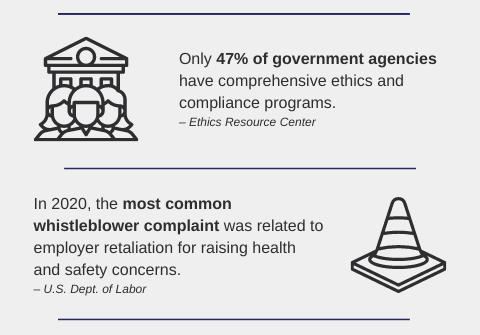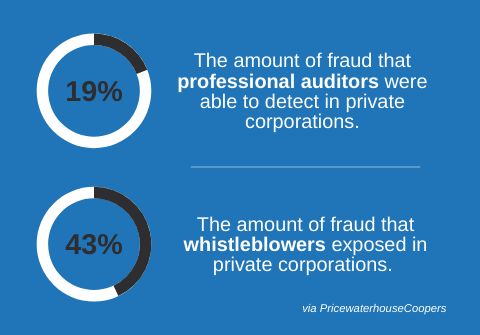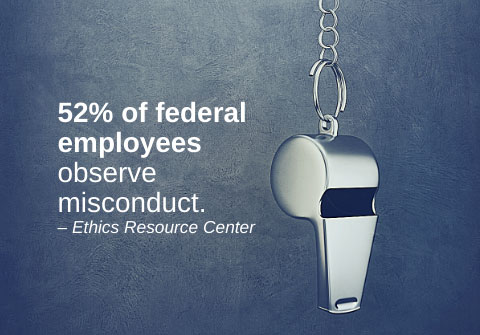If you learn your company is doing something illegal, you can find yourself stuck between a rock and hard place – feeling a responsibility to report misconduct, but afraid of losing your job if you speak out. Maybe your boss let it slip that the company didn’t report everything it should have to the IRS, or maybe you came across a document that revealed your employer is stealing from its clients. If your employer is publicly traded or uses federal funds (for example, a defense contractor or Medicare reimbursement recipient), there are even more laws to protect you if you blow the whistle on fraud.
While it might be daunting to consider reporting your employer for wrongdoing, there are laws to protect and even reward those who report unethical or illegal behavior, and it can be illegal for your employer to retaliate against you for reporting unlawful behavior.
Whistleblower Protections
Federal and state laws encourage whistleblowers to report fraud and provide protection from retaliation for reporting or participating in the investigation of misconduct.
These laws include the federal Whistleblower Protection Act of 1989, the National Defense Authorization Act, the Texas Whistleblower Act, and the False Claims Act. The First Amendment of the U.S. Constitution and 42 U.S.C § 1983 also prohibit the government from retaliating against its employees for exercising their right to freedom of speech regarding a matter of public concern, providing further protection for whistleblowers.
Some states have general whistleblower protections as a matter of public policy for reporting or opposing illegal activity; other states, like Texas, offer more limited protections, unless you were fired solely for refusing your employer’s instruction to commit a crime. This exception, called a Sabine Pilot claim in Texas, is the only whistleblower-type protection in Texas not found in a statute.
Some whistleblower protection laws require that you take action in as little as 30 days after an act of retaliation, so it is important to call or text us as soon as you suspect you’ve been retaliated against.
Rewards
Many whistleblowing laws allow for rewards paid to the whistleblower, with payouts varying depending on the variety of whistleblowing, the type of company reported, the quality of the claim, and the amount of money recovered.

















